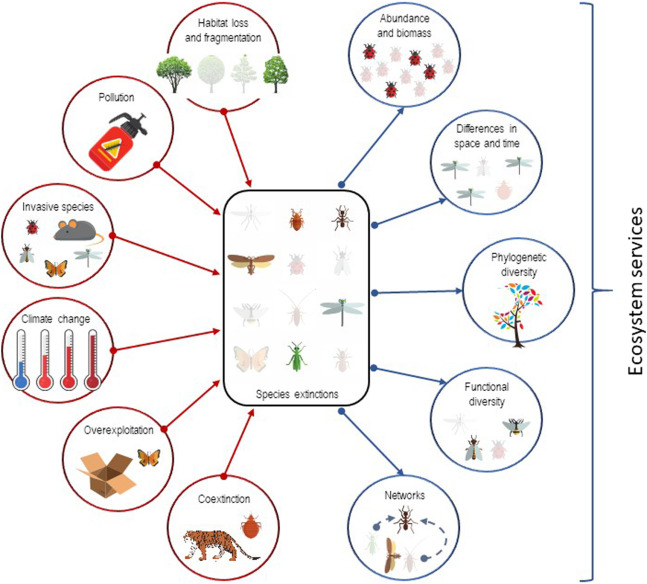Apr
09
2020
 While we are all shuttering at home, especially as the weeks drag on, many people are looking for some constructive things to do. Of course some of use can work from home, others have essential jobs and still have to go to work, but even then we are spending the rest of the time at home rather than going out. This has been a boon to streaming services, but also has changed perceptions about certain online activities, including telehealth, telemental health, online conferences, and online learning. Since we are basically forced to do this, some who were resistant to such things are learning that it’s not so bad. I do wonder how long this effect will last. Will this be a short-lived phase and we quickly revert to our past attitudes and standards, or will this permanently change the world? We’ll know in a few years.
While we are all shuttering at home, especially as the weeks drag on, many people are looking for some constructive things to do. Of course some of use can work from home, others have essential jobs and still have to go to work, but even then we are spending the rest of the time at home rather than going out. This has been a boon to streaming services, but also has changed perceptions about certain online activities, including telehealth, telemental health, online conferences, and online learning. Since we are basically forced to do this, some who were resistant to such things are learning that it’s not so bad. I do wonder how long this effect will last. Will this be a short-lived phase and we quickly revert to our past attitudes and standards, or will this permanently change the world? We’ll know in a few years.
Meanwhile, it’s good to know empirically if online learning, for example, is as effective as in person learning. This has already been the subject of many studies, and a recent study adds to the list. A 2010 meta-analysis of such research found that online learning was superior to traditional in person learning in terms of outcomes. However, these conclusions were criticized because the studies focused on well-prepared college students and may not generalize to the underprivileged or the general population. Overall the research shows that online learning is at least equivalent to in person learning, and may be superior in some cases.
The recent study is in line with this general trend in the research. This is what they did:
The experiment involved 325 second-year engineering students from resource-constrained universities. Students took two courses hosted by the national Open Education platform. Before the start of the course, they were randomly divided into three groups. The first group studied in person with the instructor at their university, the second group watched online lectures and attended in-person discussion sections (i.e., a blended modality), and the third group took the entire course online and communicated with instructors at the course’s forum.
They found that all three groups had the same learning as measured by testing. However, the online group had slightly higher grades on assignments, but slightly lower overall satisfaction. The lower satisfaction was related to unfamiliarity with online learning and some difficulty with self-time management. This suggests that online students need some structure and support.
Continue Reading »
Apr
07
2020
 Dr. Matt Hill is filling the role of the Lorax for insects. They are a critical part of our ecosystem, and they are experiencing a long term decline. I know there is a lot to worry about in our complex world, and insects may not immediately jump to near the top of the list, but they are important, and also an index of ecological change.
Dr. Matt Hill is filling the role of the Lorax for insects. They are a critical part of our ecosystem, and they are experiencing a long term decline. I know there is a lot to worry about in our complex world, and insects may not immediately jump to near the top of the list, but they are important, and also an index of ecological change.
We are used to thinking of insects as pests, just as we are used to thinking of bacteria as germs that cause infections. But most species of bacteria or completely neutral when it comes to humans, and some are actually beneficial (even critical). The same is true for insects. Only a relatively small percentage are pests (which itself is a relative term), while most go about their lives indifferent to humanity. Some species are directly beneficial, like pollinators. Regardless of their relationship to humanity, insects are a critical part of the ecosystem. Insects have the largest biomass of all animals (although animals as a group are dwarfed by plants and to a lesser extent bacteria).
A 2019 study concluded that 40% of insect species were at risk of extinction over the next few decades. Other studies show a significant decrease in insect biomass over the last 50 years. This is a loss of a critical source of food for the entire ecosystem. Hill and his colleagues (Pedro Cardoso is first author) now have published a review of this research, warning the world of this critical decline, summarizing possible causes, and recommendations some steps individuals can take as partial solutions. They summarize the causes:
We are causing insect extinctions by driving habitat loss, degradation, and fragmentation, use of polluting and harmful substances, the spread of invasive species, global climate change, direct overexploitation, and co-extinction of species dependent on other species.
Like most stresses on the ecosystem, the biggest factor is land use. Recent estimates are that humans actively use almost half of all land on Earth, mostly for agriculture and ranges for domestic animals. Some of what is left is also “semi-natural”, meaning that it is not directly occupied or used, but is not “pristine” wilderness either. And of course the entire planet is now affected by things like pollution, climate change, and the introduction by human activity of invasive species. We are putting tremendous stress on ecosystems.
Continue Reading »
Apr
06
2020

What do the following things have in common? A train engineer deliberately derails his train trying to crash it into a hospital ship in port to relieve overstressed hospital. In 2016 a man entered a pizza parlor and began shooting his assault rifle. And in the last few days several cell towers in the UK were the victims of apparent arson. These strange acts were all apparently motivated by bizarre conspiracy theories. Conspiracy thinking can be dangerous on many levels. It creates an alternate view of realty, one insulated from facts and refutation. Grand conspiracy theories also commonly create a narrative in which the enlightened few are struggling against a powerful and dark secretive cabal. It can motivate people to think they must do something – something desperate, dramatic, and heroic. The train conductor sums up this mind set:
“You only get this chance once. The whole world is watching. … I had to. People don’t know what’s going on here. Now they will.”
But let’s get back to this notion that 5G networks are somehow responsible for the coronavirus pandemic, or at least making it worse. This claim occurs in the context of general fear of the health effects of 5G. As I discussed at length in this SBM article, these concerns are not valid and are confusing the implications of the science. Here’s the quick version – 5G is operating at a relatively low frequency and low energy level, too low to cause direct harm to tissue. This is what is called non-ionizing radiation, because it is too low power to break chemical bonds. 5G critics make much of the fact that 5G is at a higher frequency than 4G or 3G , operating in the 28 and 39 gigahertz range. But as I and others point out, as you go higher still in EM frequency you get to visible light. Visible light has a frequency rage of 430–770 THz – that’s terahertz, which is 1,000 gigahertz – so visible light is at a frequency about 12,000 times higher than 5G. 5G networks are also low power, in the tens or at most hundreds of watts. In other words, that computer screen you are looking at right now is bathing you is much more powerful and higher frequency EM radiation than any 5G network.
Continue Reading »
Apr
03
2020
 As a skeptical science communicator I am constantly walking the line between hope and cynicism. On the one hand, I very much take to heart Carl Sagan’s approach to science – focusing on the absolute wonder of the universe, and celebrating the curiosity and ingenuity of humanity. We have peered into the past, walked on the moon, and decoded many of the secrets of life. Science is a powerful tool that has transformed the world more in the last few centuries than in tens of thousands of years beforehand. And yet, humanity still struggles with the demons of our evolutionary history. We are tribal, superstitious, and capable of surrendering our critical thinking to a charismatic leader.
As a skeptical science communicator I am constantly walking the line between hope and cynicism. On the one hand, I very much take to heart Carl Sagan’s approach to science – focusing on the absolute wonder of the universe, and celebrating the curiosity and ingenuity of humanity. We have peered into the past, walked on the moon, and decoded many of the secrets of life. Science is a powerful tool that has transformed the world more in the last few centuries than in tens of thousands of years beforehand. And yet, humanity still struggles with the demons of our evolutionary history. We are tribal, superstitious, and capable of surrendering our critical thinking to a charismatic leader.
What this all means is that when we are faced with a challenge, even a crisis, we are capable of meeting it. We can bring the tools of science, philosophy, and politics to bear to solve almost any problem. And yet the extent to which we will fail to do so is a consequence of our own stupidity and lack of critical thinking. There is nothing like a pandemic to reveal all of this – the good and the bad.
On the bright side, there have already been thousands of studies of the novel coronavirus (SARS-COV-2) and the disease it produces, COVID-19. Researchers are already exploring possible treatments and developing a vaccine. Meanwhile, we have solid mechanisms everyone can use to protect themselves and slow the spread of disease. Where implemented properly and in time, these strategies work. Compare this to just 100 years ago, during the 1918 flu pandemic. That pandemic killed at least 50 million people worldwide – and that magnitude was created largely by the world’s collective failure to properly understand and deal with the virus. They had no treatment, no vaccine, and utterly failed to enact adequate public health measures (for sure, this was partly due to the fact that they were fighting a world war and many politicians prioritized the war effort over mitigating the pandemic). Go back a bit further to the black death, which killed a third of Europe, and they did not even understand the nature of the pandemic. Their ignorance made them all but helpful before it.
Today, through science we understand exactly what is going on, down to the molecular level. And we have the methods to quickly (relatively speaking) figure our how best to address it. It is still a challenge, because the pandemic is moving quickly, but all we really have to do collectively is not panic and listen to our own experts. But of course, it’s never that simple. Some people will find a way to screw it up, because humanity is a complex mixture of motivations, biases, and emotions.
Continue Reading »
 While we are all shuttering at home, especially as the weeks drag on, many people are looking for some constructive things to do. Of course some of use can work from home, others have essential jobs and still have to go to work, but even then we are spending the rest of the time at home rather than going out. This has been a boon to streaming services, but also has changed perceptions about certain online activities, including telehealth, telemental health, online conferences, and online learning. Since we are basically forced to do this, some who were resistant to such things are learning that it’s not so bad. I do wonder how long this effect will last. Will this be a short-lived phase and we quickly revert to our past attitudes and standards, or will this permanently change the world? We’ll know in a few years.
While we are all shuttering at home, especially as the weeks drag on, many people are looking for some constructive things to do. Of course some of use can work from home, others have essential jobs and still have to go to work, but even then we are spending the rest of the time at home rather than going out. This has been a boon to streaming services, but also has changed perceptions about certain online activities, including telehealth, telemental health, online conferences, and online learning. Since we are basically forced to do this, some who were resistant to such things are learning that it’s not so bad. I do wonder how long this effect will last. Will this be a short-lived phase and we quickly revert to our past attitudes and standards, or will this permanently change the world? We’ll know in a few years.
 Dr. Matt Hill is filling the role of the Lorax for insects. They are a critical part of our ecosystem, and they are experiencing a long term decline. I know there is a lot to worry about in our complex world, and insects may not immediately jump to near the top of the list, but they are important, and also an index of ecological change.
Dr. Matt Hill is filling the role of the Lorax for insects. They are a critical part of our ecosystem, and they are experiencing a long term decline. I know there is a lot to worry about in our complex world, and insects may not immediately jump to near the top of the list, but they are important, and also an index of ecological change.
 As a skeptical science communicator I am constantly walking the line between hope and cynicism. On the one hand, I very much take to heart Carl Sagan’s approach to science – focusing on the absolute wonder of the universe, and celebrating the curiosity and ingenuity of humanity. We have peered into the past, walked on the moon, and decoded many of the secrets of life. Science is a powerful tool that has transformed the world more in the last few centuries than in tens of thousands of years beforehand. And yet, humanity still struggles with the demons of our evolutionary history. We are tribal, superstitious, and capable of surrendering our critical thinking to a charismatic leader.
As a skeptical science communicator I am constantly walking the line between hope and cynicism. On the one hand, I very much take to heart Carl Sagan’s approach to science – focusing on the absolute wonder of the universe, and celebrating the curiosity and ingenuity of humanity. We have peered into the past, walked on the moon, and decoded many of the secrets of life. Science is a powerful tool that has transformed the world more in the last few centuries than in tens of thousands of years beforehand. And yet, humanity still struggles with the demons of our evolutionary history. We are tribal, superstitious, and capable of surrendering our critical thinking to a charismatic leader.




